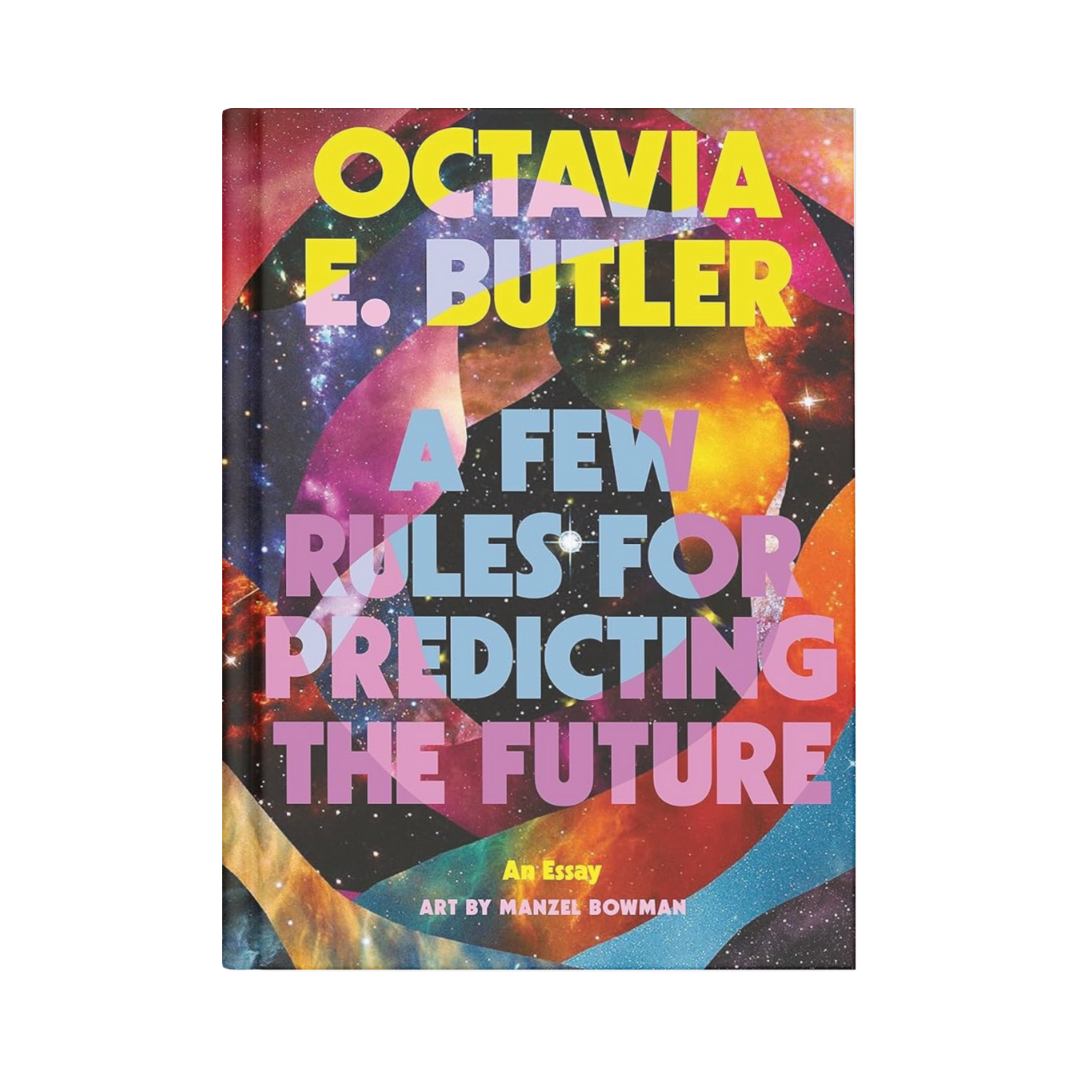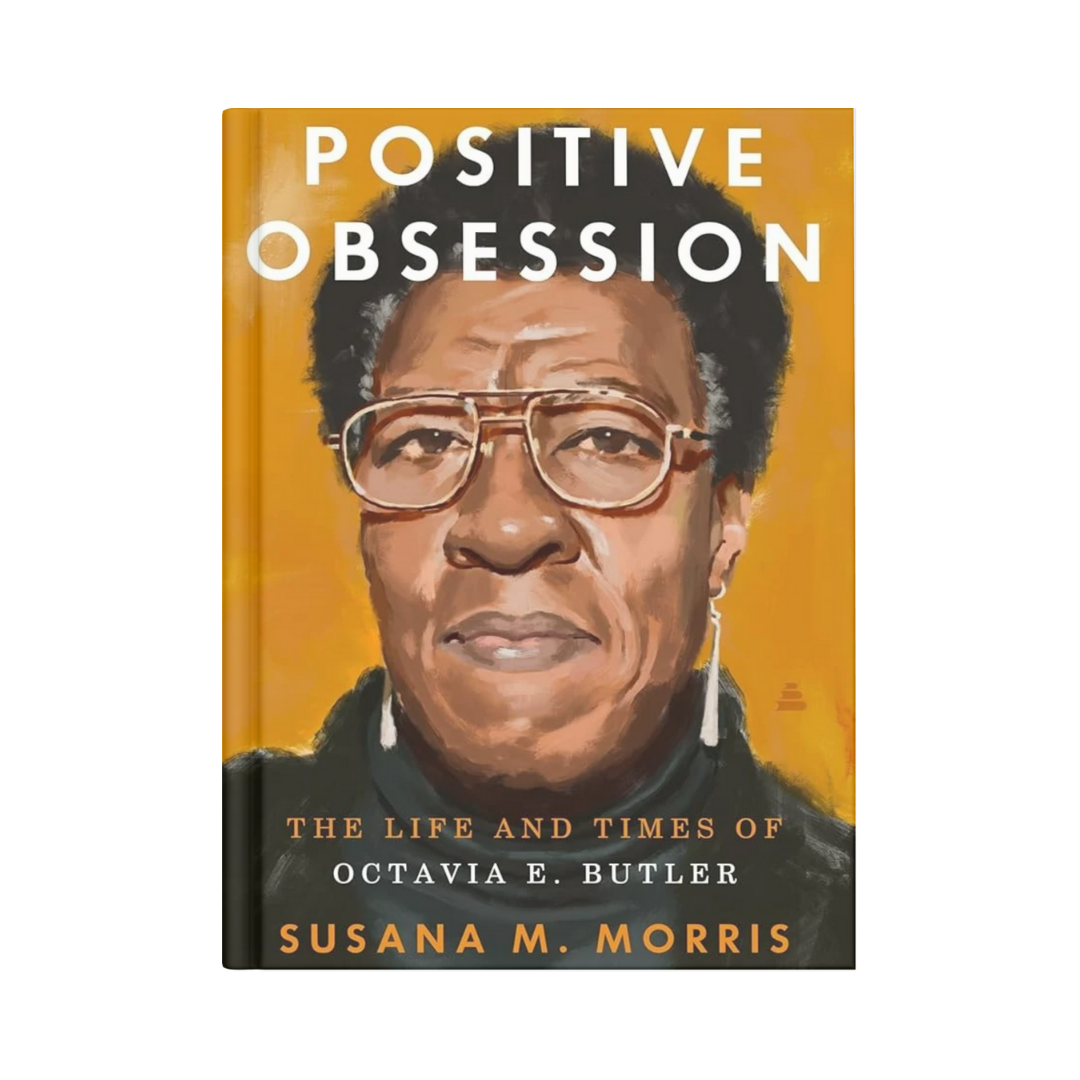5 Books About the Future That Weren't Written by White Dudes
The futures canon has a diversity problem.
Walk into most bookstores and you'll find business books promising to decode what's coming, usually written by consultants, tech executives, and academics who share remarkably similar demographics and worldviews. Their frameworks center technology, markets, and innovation as the primary drivers of change.
Who gets to imagine the future shapes what futures become possible. When one demographic dominates foresight literature, we inherit their blind spots, their assumptions, their unexamined beliefs about how change works and who it serves.
The books below expand what futures thinking can be. Written by women and people of color, they ask different questions, notice different patterns, and imagine possibilities that rarely make it into mainstream future-of-work bestsellers. They treat futures work as a practice of meaning-making, where whose voices shape the conversation determines whose futures get built.
“There’s no single answer that will solve all our future problems. There’s no magic bullet. Instead there are thousands of answers—at least. You can be one of them if you choose to be.”
A Few Rules for Predicting the Future
by Octavia E. Butler
If you want to understand how Butler turned observation into prophecy.
Octavia Butler didn't predict the future through trend analysis or technological forecasting. She watched people. She studied power. She paid attention to what systems do under pressure.
This slim essay, gorgeously illustrated by Manzel Bowman, distills Butler's approach to futures thinking into a handful of principles that feel more relevant now than when she first articulated them. She writes about pattern recognition, about understanding that humans are both hierarchical and adaptable, about seeing change as the only constant we can depend on.
Butler's "rules" work through observation rather than prescription. She noticed that when resources become scarce, people reliably choose certain survival strategies. She saw how power concentrates, how communities fracture, how new social arrangements emerge from crisis. Then she wrote those patterns forward.
Reading this essay offers a master class in futures thinking from someone who saw it all coming. The climate refugees. The corporate-controlled governance. The religious extremism rising from economic desperation. She didn't need big data or AI models. She paid attention to what people do when the world stops working.
For anyone doing futures work, this book clarifies the difference between prediction and prophecy. Prediction extrapolates trends. Prophecy understands human nature under pressure.
Imagination: A Manifesto
by Ruha Benjamin
If you're wondering how imagination shapes the world we live in
However, Benjamin shows how contemporary artists, technologists, educators and activists are tackling these issues by boldly experimenting with new integrative paradigms and concepts of knowledge, identity, temporality and reality itself. The book surveys a range of creative radical practices, from Afrofuturism to activist science fiction, showing how they rupture limiting worldviews and open up full spectrums of human potential. Ultimately, Benjamin issues an empowering call for social movements to leverage imagination as a vital collective resource to dismantle toxic institutions and construct more equitable, ecological and liberatory modes of existence.
Positive Obsession: The Life and Times of Octavia E. Butler
by Susana M. Morris
If you want to know more about the woman behind the prophecies.
Understanding Butler's futures requires understanding her life. How a Black woman from Pasadena, working through dyslexia in an era that pathologized rather than accommodated it, became one of the most visionary writers of the 20th century.
Susana Morris's biography traces Butler's journey from a shy, bookish kid who couldn't see herself reflected anywhere in the science fiction she loved, to a writer who fundamentally reshaped what speculative fiction could do. Morris shows how Butler's experiences with poverty, racism, and isolation became the foundation of her imagination.
Butler wrote futures where Black women survived, led, and possessed power that didn't require them to become palatable to white comfort. World-building as resistance. Speculation as survival strategy.
The book also examines Butler's writing process, her discipline, her "positive obsession" with getting words on the page even when publishing doors stayed closed. She treated writing like labor because she understood that imagining different futures required work, not just inspiration.
Essential context for understanding Butler's genius and why her approach to futures thinking remains unmatched.
Outgrowing Modernity: Navigating Complexity, Complicity, and Collapse with Accountability and Compassion
by Vanessa Machado de Oliveira
If you're ready to question everything you think you know about "progress."
Vanessa Machado de Oliveira writes from the premise that modernity itself needs examination. The entire framework—linear time, extractive economics, the human/nature binary, the myth of endless growth—might need composting rather than reform.
This book refuses easy answers. It asks readers to sit with discomfort, to acknowledge complicity, to recognize that we are all entangled in systems that harm us even as we benefit from them. De Oliveira writes about decolonizing imagination itself. About learning to think in cycles rather than timelines. About metabolizing harm instead of denying it.
She draws on Indigenous epistemologies, particularly from Brazilian traditions, to articulate what she calls "hospicing modernity"—the practice of accompanying a dying system with honesty and care while midwifing what wants to emerge.
This approach to futures work centers accountability and relationship over innovation and optimization. It asks what happens when we stop trying to fix the system and start learning to live in the ruins it created, with humility and attention to what the earth is teaching us about regeneration.
For anyone ready to compost the old world and see what grows from that soil, this book provides both framework and practice.
Dismantling the Master's Clock : On Race, Space, and Time
by Rasheedah Phillips
If you're tired of linear time and colonial calendars.
Rasheedah Phillips is a lawyer, a DJ, a speculative fiction writer, and one of the most interesting thinkers working at the intersection of time, Blackness, and futurity. This book emerges from her work with the Afrofuturist Affair and Black Quantum Futurism, projects that treat time as contested terrain.
Phillips argues that the way we're taught to experience time—linear, progressive, moving from past to future in a straight line—serves particular systems. Capitalism requires us to believe that time is money, that efficiency is virtue, that the future is a destination we're racing toward.
She explores alternative temporalities: circularity, simultaneity, temporal autonomy. She writes about how marginalized communities have always practiced non-linear time as a survival mechanism, how memory and futurity collapse into each other in Black cultural production, how we might build temporal justice movements.
The book includes speculative fiction, theoretical essays, and practical experiments with restructuring time in daily life. Essential reading for anyone interested in how time itself shapes whose futures get imagined and whose get erased.
Why This Matters
These five books share an understanding that futures work is never neutral. Every forecast embeds assumptions about whose lives matter, whose knowledge counts, whose visions deserve resources.
When white men dominate futures literature, we get futures that center their concerns: technological advancement, market disruption, efficiency, scale. We get Mars colonies before universal healthcare. We get "move fast and break things" instead of "move carefully and repair what's broken."
The writers above offer different starting points. What if we centered care instead of innovation? What if we valued cyclical time instead of linear progress? What if we treated imagination as a commons instead of intellectual property? What if the future was about learning to live here with humility and attention?
The crises we face—climate collapse, mass incarceration, algorithmic oppression, the unraveling of democratic institutions—emerged from imaginations that couldn't see beyond extraction, accumulation, and control.
We need different imaginations. Different questions. Different people leading the conversations about what comes next.
These books are a start.





